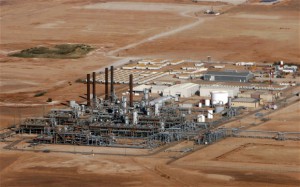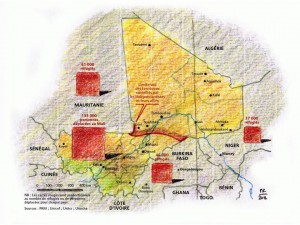
Algeria-US: Update. A senior Algerian official said that one of the terrorists captured at the In Amenas gas plant said under interrogation that some of the dead Egyptian terrorists also participated in the attack on the US Consulate in Benghazi last year. Three terrorists are in custody.
The official said the terrorists staged in southern Libya with arms purchased in Tripoli, Libya. He also said, “This is the result of the Arab Spring…. I hope the Americans are conscious of this.”
Comment: There is no way to corroborate the detainee's statement. What is worth noting is that the Algerian official's statements help explain why the Algerians might have had few qualms about assaulting the terrorists, despite the risk to foreigners. The Algerian government expects more attacks and the outcome will probably not be much different for foreigners.
The government has opposed US policy in the Arab world, especially the overthrow of the Qadhafi government. Some officials are making it very clear they hold American policy ultimately responsible for the gas plant attack in Algeria, the invasion of northern Mali by Islamist fighters and future attacks to come.
Americans working in Algeria are at increased risk from terrorists. Moreover, their safety does not appear to be a major factor in government planning for rescue operations.
Continue reading “NIGHTWATCH: Weak Signal from Algeria – Anti-US Forces Up Their Game”



